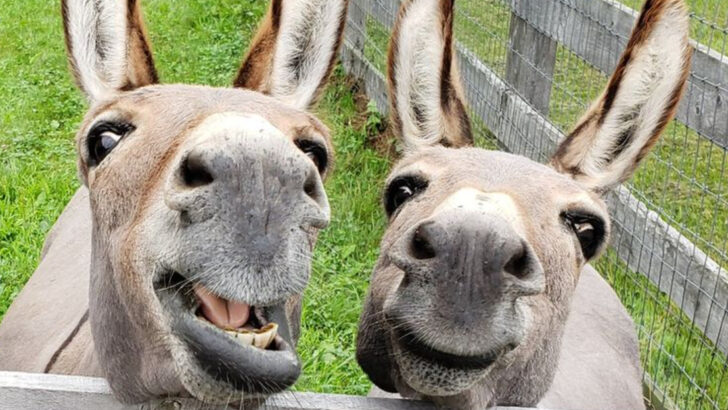Coyotes on your property? You’re not alone. These clever creatures can be a real headache for homeowners, but fear not—nature has a solution. There are animals that coyotes can’t stand, and they can help protect your space in ways you might never expect.
From fierce predators to territorial defenders, these animals bring balance and protection to your property while keeping coyotes at bay. The best part? Their presence not only helps you deter coyotes but also contributes to the overall health of your local ecosystem.
In this post, we’ll explore 18 animals that coyotes absolutely despise. With their unique characteristics and protective instincts, these animals are nature’s very own security system. Ready to reclaim your peace of mind? Let’s dive in and discover how these creatures can help safeguard your home!
Donkeys
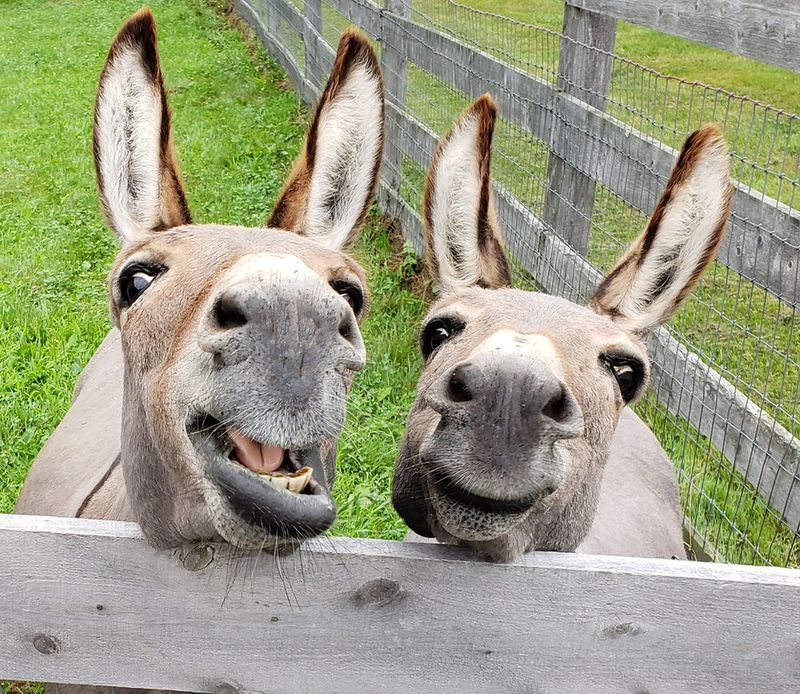
Donkeys, with their sturdy stature and loud bray, make for excellent guardian animals. Their territorial nature and dislike for intruders turn them into formidable protectors.
When coyotes approach, donkeys won’t hesitate to confront them, using their powerful kicks as a warning. Donkeys are social creatures that enjoy the company of other livestock, creating a safe environment for all.
Having them around adds a layer of security to properties. Their presence isn’t just practical; it’s also delightful, as they often form strong bonds with humans. Adding a donkey to your property offers both companionship and protection.
Llamas
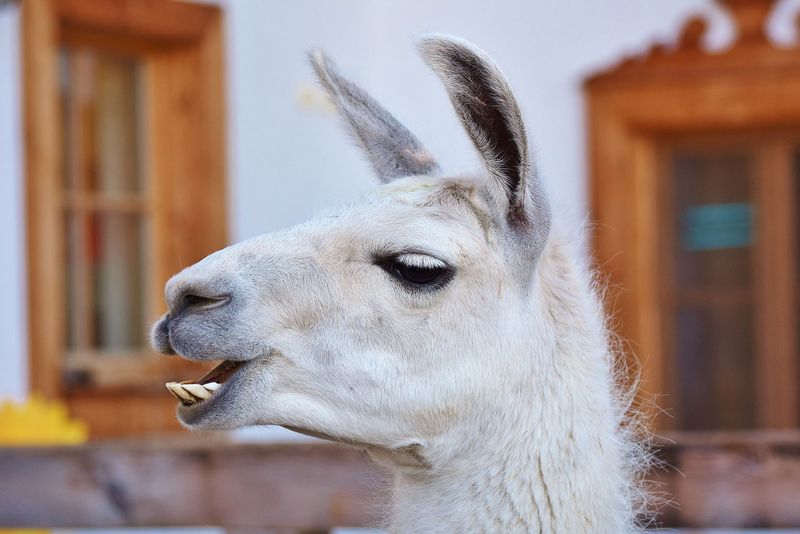
Llamas are renowned for their protective instincts, especially towards sheep. Their ability to spot danger from afar makes them vigilant guardians. When a coyote approaches, llamas use their impressive size to intimidate the intruder.
They may also emit loud warning calls to alert others of the threat. Beyond their protective nature, llamas are low-maintenance animals that thrive in various climates.
Their wooly coats and curious personalities add charm to any farm. Llamas not only keep coyotes away but also bring a sense of peace and security to their surroundings. They are truly versatile protectors.
Alpacas
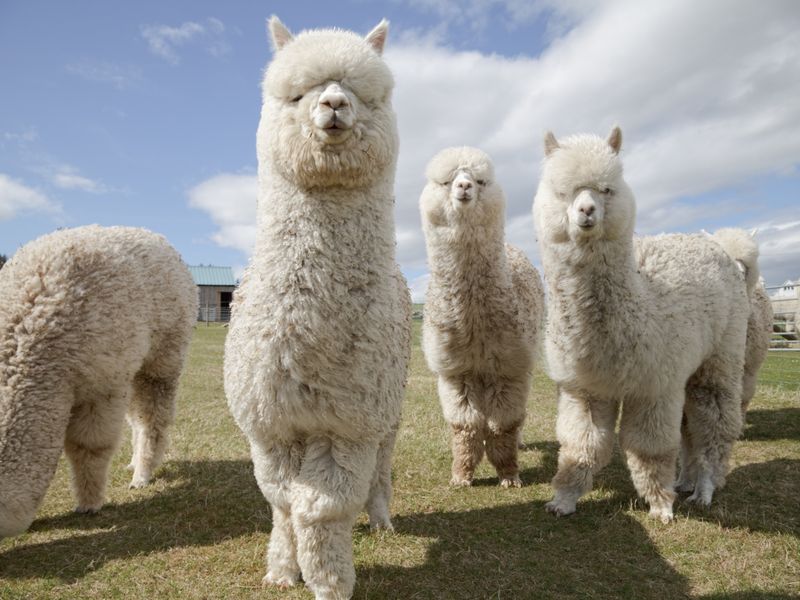
Alpacas, although smaller than llamas, are still effective in warding off coyotes. Their alertness and group behavior make them reliable protectors. When faced with a threat, alpacas band together, often scaring away potential predators.
Their gentle nature with humans contrasts their fierce protectiveness over livestock. Alpacas are also known for their luxurious fleece, which is highly valued.
Having alpacas not only ensures the safety of your animals but also provides the added benefit of a sustainable wool source. Their presence is both practical and charming, making them a valuable addition to any property.
Guinea Fowl
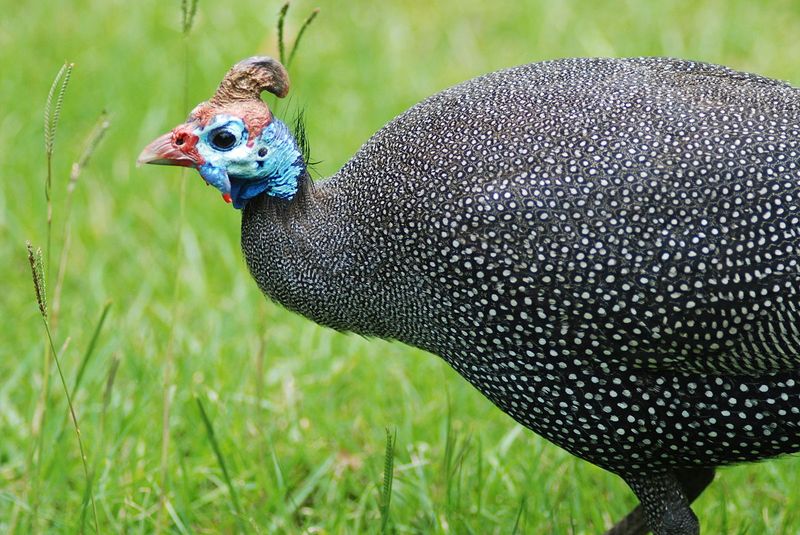
Guinea fowl are small but mighty when it comes to deterring coyotes. Their sharp eyesight and loud calls are enough to alert other animals to danger. Known for their voracious appetite for ticks, they contribute to pest control as well.
In groups, guinea fowl create a ruckus that few predators dare to challenge. Their presence on a farm is both beneficial for the ecosystem and a natural deterrent for coyotes.
Besides protection, they add a unique charm with their quirky behavior and distinctive calls, making them a lively addition to any animal community.
Geese
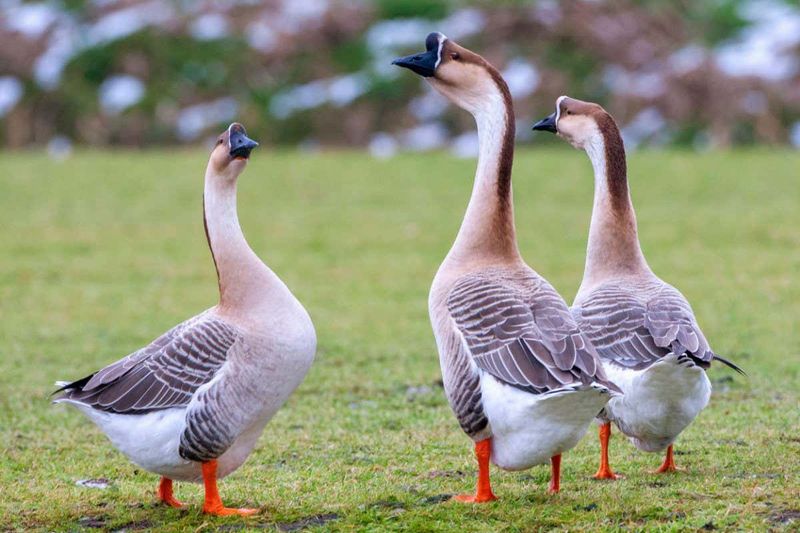
Geese are known for their loud honks and aggressive nature when protecting their territory. Their keen senses make them excellent watchdogs against coyote intrusions.
When danger lurks, a goose’s piercing honk serves as an alarm, alerting all nearby creatures. Geese are not only protective but also relatively easy to care for, often thriving in various environments.
Their presence adds a layer of security while also providing natural beauty to your property. With their assertive nature and distinctive calls, geese make effective guardians against unwanted intruders like coyotes.
Ostriches
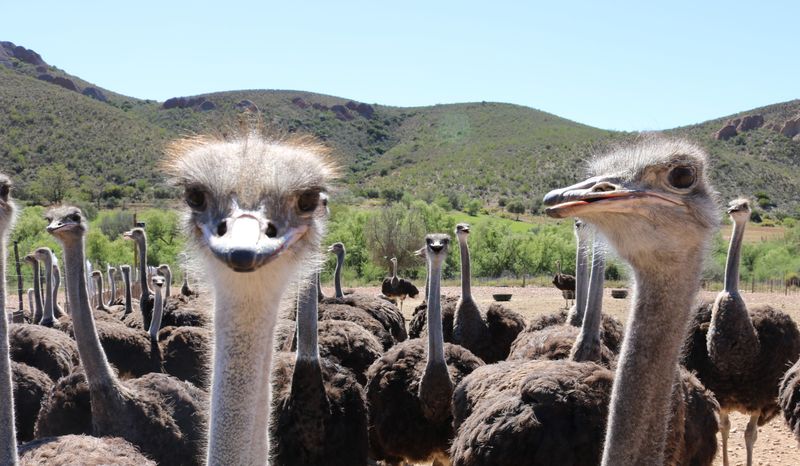
Ostriches, with their towering height and powerful legs, can intimidate even the boldest coyotes. Their impressive speed and agility allow them to chase off intruders with ease.
Though mostly known for their gigantic eggs, ostriches are also remarkable protectors. Their presence on a farm can discourage coyotes from venturing too close. Ostriches bring a touch of the exotic to any landscape, captivating with their grace and strength.
They require ample space to roam, making them suitable for properties with open fields. An ostrich’s majestic presence is a formidable deterrent against coyotes.
Emus
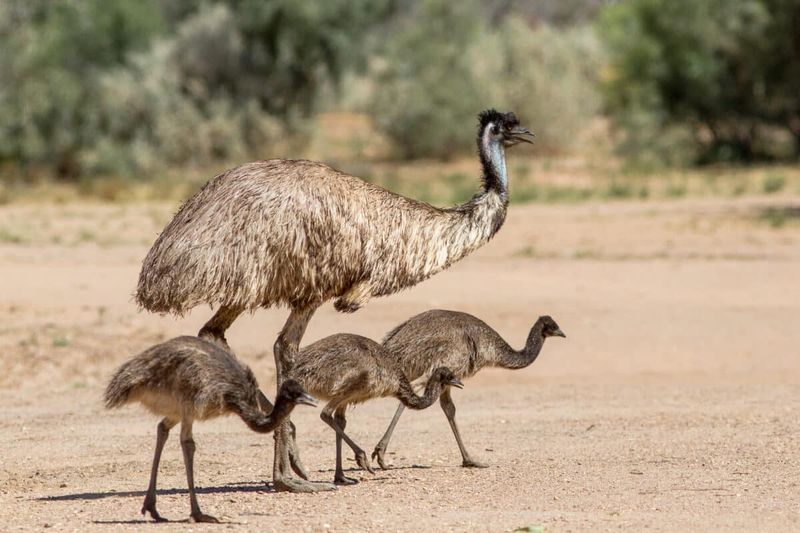
Emus, relatives of the ostrich, are known for their protective nature and keen awareness. Their large size and intimidating posture make them effective at warding off predators like coyotes.
Emus are naturally curious and will often approach anything unusual, deterring potential threats. Their strong legs can deliver a powerful kick if necessary. Emus thrive in various environments, adapting well to different climates.
Their unique appearance and behavior add intrigue to any property. By having emus around, you not only gain a guardian but also a fascinating companion that enriches your surroundings.
Kangaroos
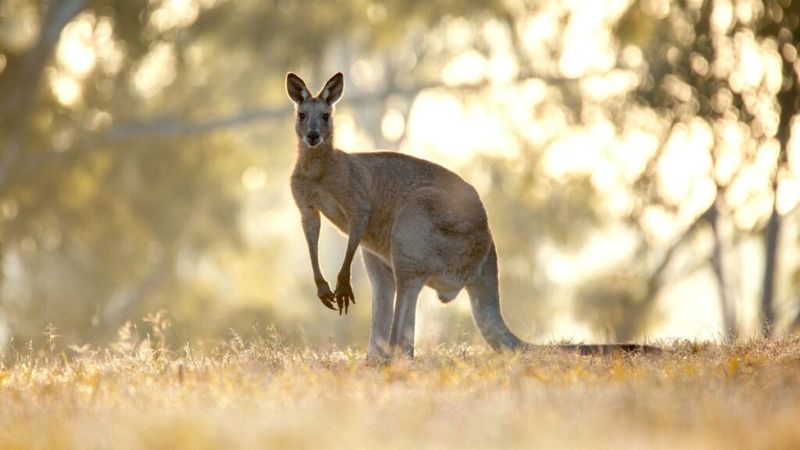
Kangaroos may not be native to all regions, but their fierce demeanor makes them potential coyote deterrents. Known for their strong legs and powerful kicks, kangaroos can defend their territory effectively.
Their upright stance and watchful eyes make them vigilant protectors. Kangaroos are social animals, often moving in groups, which further deters lone predators.
While they require specific environments to thrive, their presence can add a unique dynamic to suitable properties. Kangaroos not only safeguard their territory but also bring a slice of Australian wilderness to your backyard.
Swans
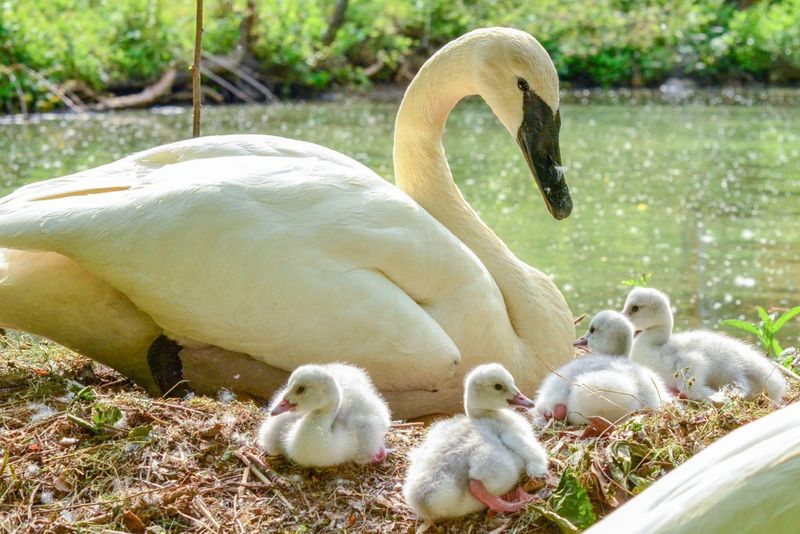
Swans, with their regal appearance, might seem gentle, but they are fiercely protective of their territory. Their aggressive behavior when defending nests can deter coyotes from approaching waterfront areas.
Swans use their powerful wings and loud hisses to ward off intruders. Their presence in a pond or lake adds elegance while serving as a natural deterrent.
Swans are not only beautiful to look at but also efficient guards of their domain, ensuring the safety of other water-dwelling creatures. Their combination of grace and assertiveness makes swans unique protectors against coyotes.
Turkeys
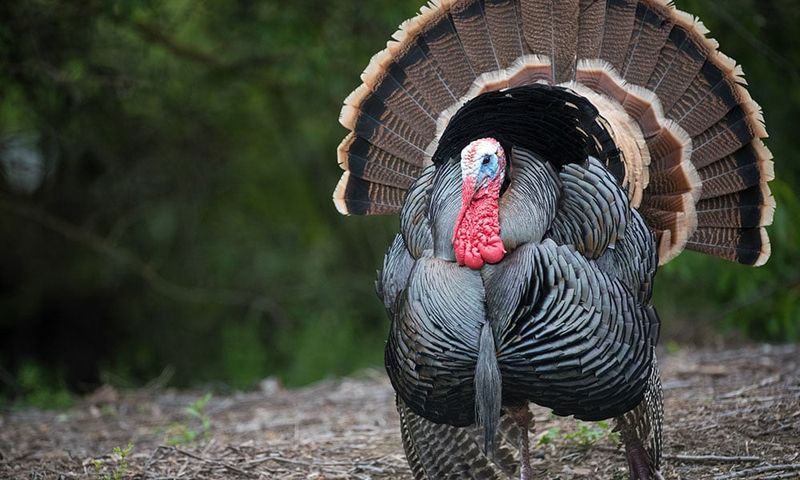
Wild turkeys are more than just a holiday staple; they are vigilant protectors against coyotes. Their keen senses allow them to detect predators quickly. When threatened, turkeys band together, creating a chaotic scene that can confuse and deter coyotes.
Turkeys are resourceful foragers, contributing to the ecosystem by keeping insect populations in check. Their dynamic presence on a property adds both protection and natural pest control.
With their striking plumage and lively disposition, turkeys make an engaging addition to any landscape dedicated to deterring coyotes.
Peafowl
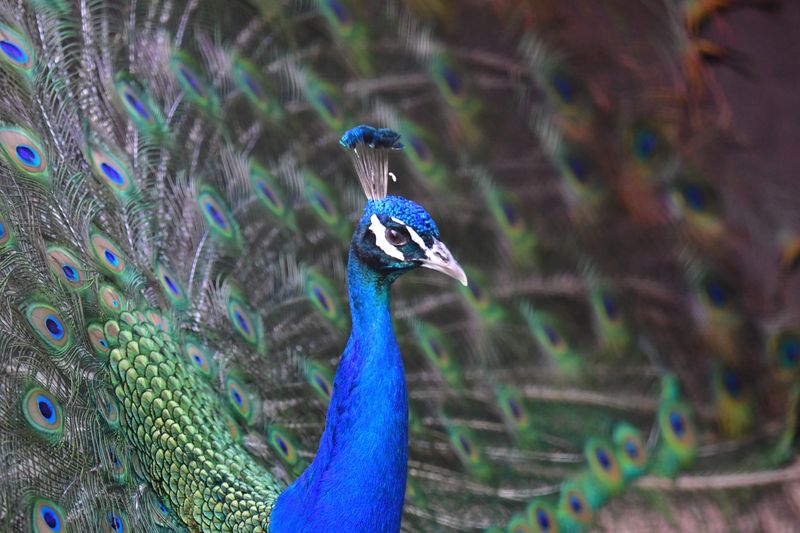
Peafowls’ famed beauty is matched by their protective instincts. Their loud, piercing calls serve as an effective alarm system against intruders like coyotes. When they sense danger, peafowls alert other creatures, reinforcing security on the property.
Besides their vocal warnings, these birds are also known for their territorial behavior. Their stunning appearance adds an exotic flair to any garden or estate, while their protective nature ensures peace of mind.
Peafowls, with their blend of beauty and vigilance, serve as both visual and practical deterrents to coyotes.
Roosters
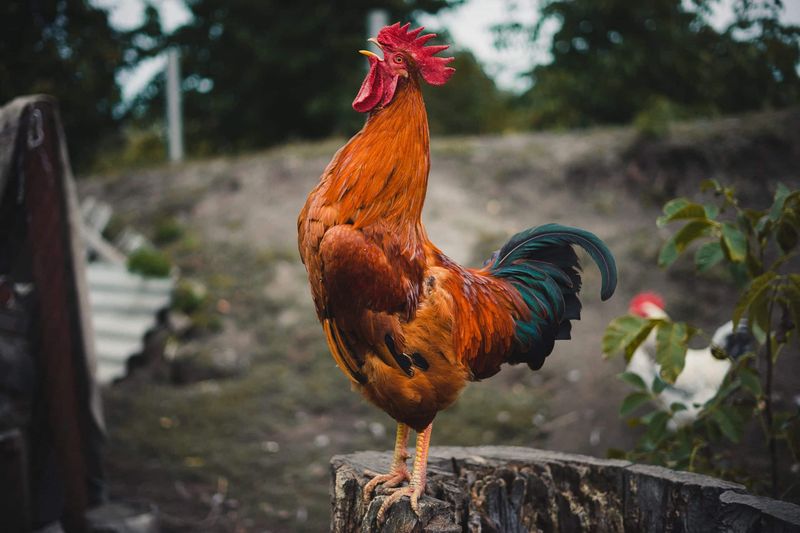
Roosters are iconic barnyard sentinels known for their early morning calls and bold demeanor. Their vigilance and tendency to crow at danger make them reliable guardians against coyotes.
Roosters will often confront intruders, using their beaks and spurs to defend their flock. Their presence ensures a watchful eye over the barnyard, deterring potential threats.
Roosters add charm and energy to any farm, while their protective nature fosters a safe environment for other animals. With their colorful plumage and assertive stance, roosters are more than just alarm clocks—they’re fearless defenders.
Mules
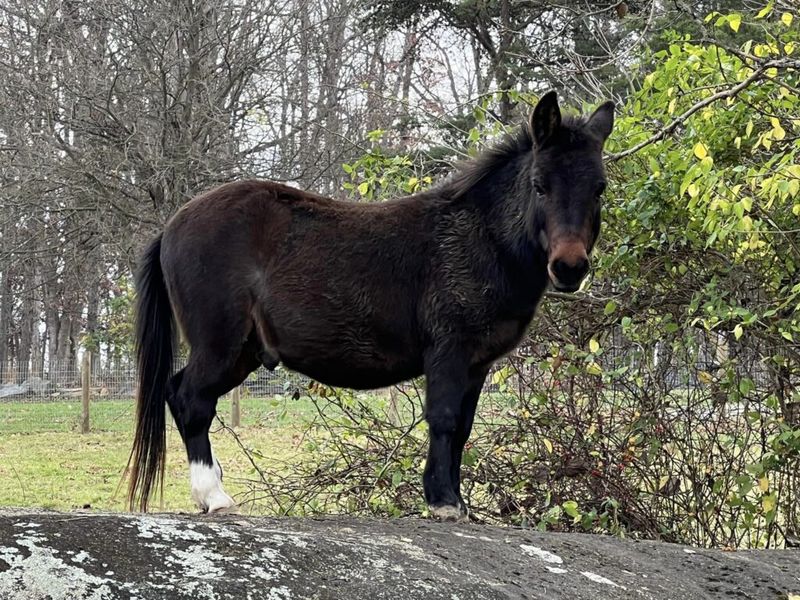
Mules, hybrids of horses and donkeys, inherit their parents’ strengths, making them formidable protectors. Their strong build and cautious nature deter coyotes from venturing too close.
Mules have a reputation for being stubborn, but this trait translates into unwavering defense when threatened. Their presence is reassuring, especially in rural settings where coyotes often roam.
Apart from their guarding abilities, mules are also valued for their endurance and versatility. They can adapt to various tasks while ensuring the safety of their surroundings, making them a practical choice for property protection.
Highland Cattle
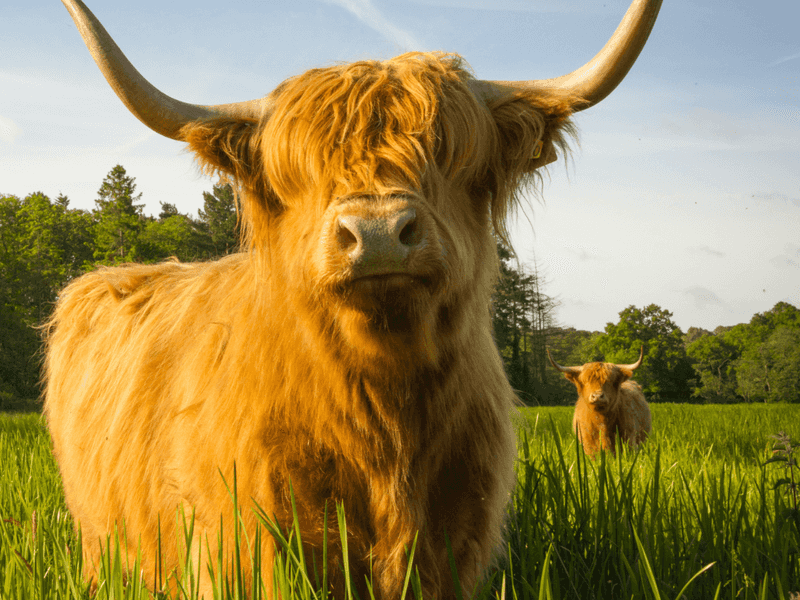
Highland cattle, with their distinctive long horns and thick coats, are more than just picturesque. These gentle giants are surprisingly effective at deterring predators like coyotes. Their imposing size and social nature help keep the herd safe.
Highland cattle are known for their hardiness in harsh climates, making them ideal for rugged terrains. Their ability to thrive in challenging environments while providing protection makes them invaluable.
Along with their protective instincts, they offer high-quality beef, contributing economically to farms. Highland cattle combine beauty and functionality, creating a serene yet secure atmosphere.
Dogs

Dogs, especially livestock guardian breeds, are unparalleled in protecting against coyotes. With their loyalty and intelligence, they form bonds with the animals they protect, creating a unified defense.
Breeds like the Great Pyrenees or Anatolian Shepherd are bred for this very purpose. These dogs patrol tirelessly, using their keen senses to detect intruders. When coyotes approach, they don’t hesitate to chase them off, using their size and strength.
Besides their protective role, dogs bring companionship and joy to property owners. Their dedication and courage make dogs indispensable allies in safeguarding land and livestock.
Cows

Cows, while typically seen as docile, can be surprisingly protective of their young. Their size and herd mentality discourage predators like coyotes. When threatened, cows will gather defensively, creating a formidable barrier.
This behavior ensures the safety of calves and other vulnerable members. Cows contribute significantly to the farm ecosystem, providing milk and meat. Their presence is not only beneficial for production but also as a deterrent against potential threats.
Cows, with their gentle yet protective nature, are essential residents of any farm seeking to keep coyotes at bay.
Goats
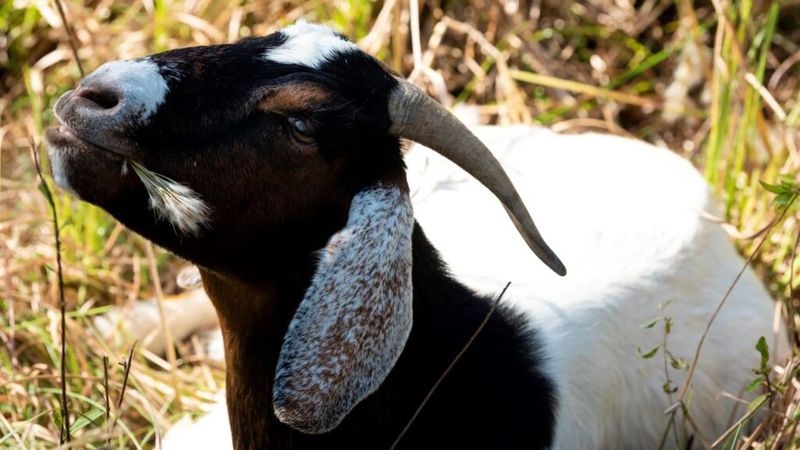
Goats, with their curious nature and agility, make unexpected allies in keeping coyotes away. Their tendency to climb and explore gives them an advantage in spotting predators early.
When threatened, goats exhibit a strong herd instinct, gathering together to present a united front. This behavior, combined with their loud bleats, can confuse and deter coyotes. Goats also contribute to land management by grazing on unwanted vegetation.
Their playful disposition makes them delightful to have around, adding both protection and charm. Goats are versatile animals, offering both utility and security to their surroundings.
Sheep

Sheep, under the watchful eye of a guardian animal like a dog, become part of an effective defense system against coyotes. Their flocking behavior ensures they stay together, reducing the risk of lone targets.
While sheep themselves are not aggressive, their presence is pivotal in a managed defense strategy. Sheep thrive in various climates, providing wool and meat as valuable resources. Their calm demeanor under protection creates a harmonious farm environment.
With guardian animals alongside, sheep transform from vulnerable targets into integral members of a cohesive deterrent against coyote threats.

